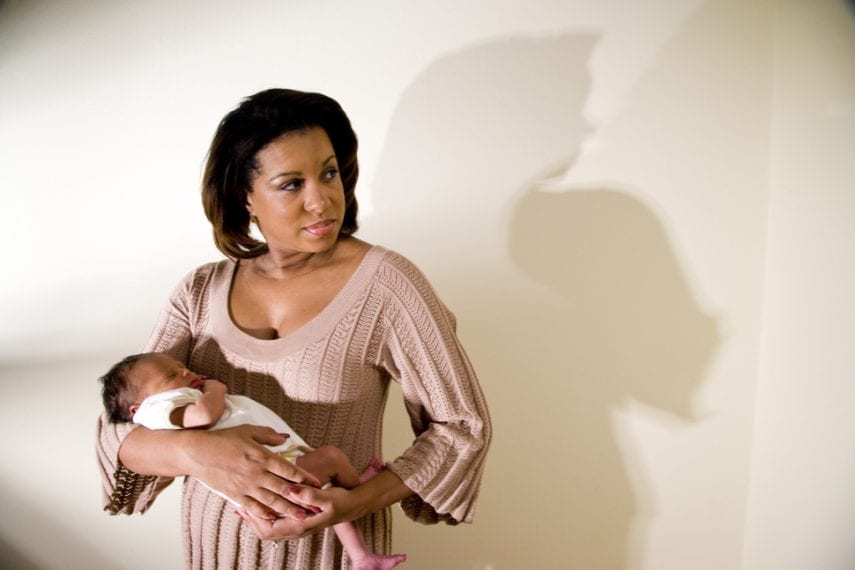Tips for Seeking Treatment for Postpartum Depression While Breastfeeding

Having a baby is one of life’s greatest joys. But as hormone levels fluctuate after giving birth, it’s easy for new mothers to feel restless, worried or sad. It doesn’t have to be this way. Feeling well enough to enjoy new motherhood starts with understanding postpartum depression and finding residential treatment for postpartum depression while breastfeeding. Treating postpartum depression at a residential treatment center may be your best path to healing, as a residential program can provide you not only with the tools, but the time and space, you need to forge a path to full and lasting recovery.
Lilly thought the weeks after bringing her infant son Nicholas home from the hospital would be filled with joy. After all, she’d dreamt of holding him in her arms for nine months. But soon after giving birth, she felt her mood change sharply.
She felt irritable, listless, and sad. She locked herself alone in her bedroom, laid herself down and cried for hours, even as baby Nicholas wailed alongside her. She didn’t have the energy to shower or eat, and soon her husband John was bottle feeding the baby full time, as she couldn’t bring herself to nurse. Guilt intertwined with the sorrow. She felt that she was a bad mother—and worse, felt powerless to do anything about it.
John looked up her symptoms online and realized she might be suffering from postpartum depression. He knew it was time to get her help from mental health professionals.
Understanding Postpartum Depression
It can happen to any woman. You feel a rush of happiness the first time you hold your newborn, but as your hormone levels change, that wonderful feeling can fade. You may feel very depressed, anxious or moody without knowing why. As postpartum depression gets worse, breastfeeding and caring for your baby gets harder, which can make you feel bad about yourself. This is no way for you and your family to live. If you are experiencing any of these symptoms of postpartum depression, it’s time to get help:
- Feeling sad, hopeless, overwhelmed, or crying frequently
- Feeling moody, irritable, or restless
- Experiencing anxiety or constant worrying
- Eating or sleeping too much or too little
- Withdrawing from friends or family
- Having trouble bonding with your baby
- Doubting your ability to care for your baby or feeling guilty
- Thinking about hurting yourself or your baby
As postpartum depression progresses, its symptoms become increasingly troubling. If you are having suicidal thoughts or are thinking of harming your baby, please call an emergency service such as 911 or the National Suicide Prevention Lifeline (1-800-273-8255). No one will judge you as the safety of you and your baby are the most important priorities in your lives, after all.
Even if you’re not having suicidal thoughts, you don’t deserve to struggle with postpartum depression. It’s a lot of strain on a new mother and her family. And with so much emotional stress, it’s not uncommon to have trouble breastfeeding. But if you’re willing to give treatment a try, you can begin to heal and do what you’ve been waiting nine months to do—be a loving mother to your beautiful child. Here are some tips for finding treatment that’s right for you.
Finding Treatment for Postpartum Depression While Breastfeeding
The process for treating postpartum depression is similar to treating major depression, but focuses on understanding and supporting a new mother’s particular therapeutic needs. For one, women often avoid seeking treatment because of the false idea that mothers should be self-sacrificing, and that to “grin and bear it” is just part of a mother’s job. Counseling explores alternatives to this harmful belief and others that may be making your postpartum depression even worse. Your treatment plan should be tailored to your needs and may involve any or all of the following methods.
Counseling or Talk Therapy
The first major part of treatment is counseling, or talk therapy. By talking one-on-one with a licensed therapist or psychologist, you can understand the emotional causes driving your depression and process unresolved feelings. You may receive cognitive behavioral therapy, which can help you identify unhelpful thoughts and behaviors and learn new coping strategies. Or you may receive interpersonal therapy, that can help you through difficult personal relationships.
Medication
You may be prescribed antidepressant or anti-anxiety medications to help balance your moods. Your medical team will take care to ensure that the medications you are prescribed are considered safe to use while breastfeeding. A residential treatment facility offers an excellent environment to monitor and adjust a new prescription, where medical supervision is always available.
Self-Care
Not only do healthy mothers take care of their babies, they care for themselves. It’s easy for women to forget how important this is, and taking time for self-care is not selfish—it’s precisely what you need to get better. Your therapist can teach you the art of self-care, starting with how to identify your emotions and your emotional needs. Through holistic therapies, you can learn relaxation techniques that reduce stress; like deep breathing, meditation, yoga, or rhythmic exercise.
Begin Your Recovery Journey.
877-727-4343Treating Postpartum Depression at a Residential Treatment Center
At a residential treatment center, a new mother can get treatment for postpartum depression 24 hours a day, seven days a week while her loved ones watch over her baby. There are group therapy sessions where you can meet other women going through the same problems you’re facing, which can help you feel less alone. You can have family therapy sessions to work on emotional issues that may be fueling your depression or to heal strained family relationships. And, you will receive comprehensive, constant treatment, including a long-term plan. In short, the right residential treatment facility can give you all the tools you need to heal so you can return to your loving family refreshed and healed as soon as possible.
With time, support from loved ones, and psychiatric treatment, you can recover and make life with your new baby joyful once more. Just ask Lily and her family. Her visit to a residential treatment facility was exactly what she needed to finally heal and care for herself. These days, she and Nicholas are thriving and their bond is stronger than ever before.
Every day with your baby is precious. The sooner you start on the path to recovery, the more time and emotional energy you’ll have to spend on loving your little one. Get started today.
Bridges to Recovery offers comprehensive residential treatment for people struggling with mental health disorders as well as process addictions. Contact us to learn more about our renowned Los Angeles programs and how we can help you or your loved one start the journey toward healing.






